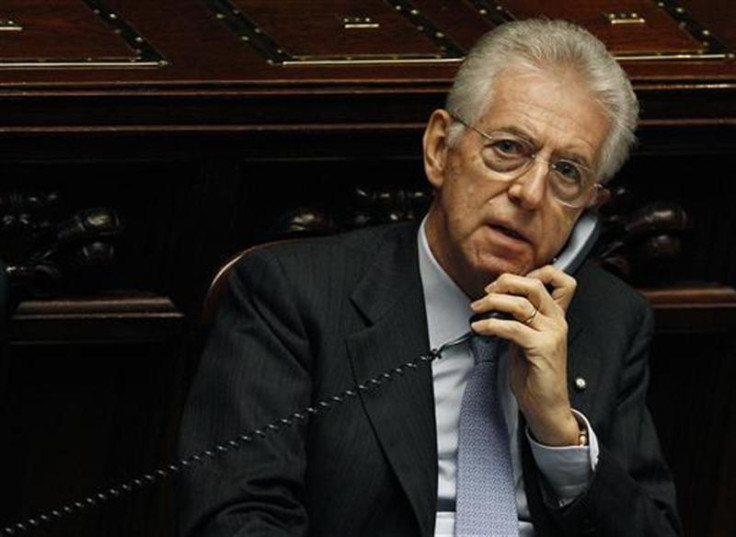Monti and an Italy in Tatters: A Daunting Agenda

Mario Monti, the new prime minister of Italy, has won the second crucial vote both at the upper and lower houses of Parliament, thereby gaining full confidence of the MPs. A widely respected economist, Monti has a tough challenge ahead - replenishing the virtually empty coffers of his country.
Analysts hope Monti's previous role as European commissioner won't overshadow the policies of his Cabinet, constituted mostly of elite technocrats, unlike his predecessor, the media mogul Silvio Berlusconi, who could never come out of his other self.
The new government took over the reins of the country after Berlusconi's regime succumbed to market pressures. Such an alternative was the need of the hour to prevent a catastrophic breakdown on the debt front and safeguard Italy from becoming another Greece.
Monti told the senators last week that: "The future of the euro also depends on what Italy will do in the next few weeks." He also indicated that the tax system would be revised and cheats monitored relentlessly. Austerity measures will be balanced out with social equality and economic growth.
The new government, which expects to be in place until the 2013 elections, has been heavily criticised over its austerity policies. Before the first confidence vote when politicians mulled over an overhaul of the financial system of Italy, there were mass protests by students against the move to make them pay the debts which they did not cause.
Also, the fact that the new Cabinet is full of unelected technocrats is a threat of sorts to the democratic fabric of the nation, which seems to have been uprooted overnight. However, Monti has been keeping people updated on each policy step that his Cabinet would be launching, in a bid to earn the confidence of the masses. The choices will be tough and unpopular if the country has to emerge from the current crisis, he has hinted.
Monti took a dig at Berlusconi, claiming that Italy's crisis is an outcome of the previous government's wrongdoing and inappropriate measures and that no one else can be blamed for the current plight. A senior member of Berlusconi's party retorted that the eurozone crisis had no contribution from Berlusconi or his government and reminded Monti that at present his government depends on the support of Berlusconi and his party.
Italy has one of the highest national debts in Europe, with almost 120 percent of GDP. The job of the new government is significantly tough. The rating agency Fitch has said that the country almost "looks like in recession." Along with an overhaul of the tax regime, Monti's government is planning to raise the retirement age, create more jobs and boost growth prospects for women and young people. A plan to reduce the government's expenditure is also on the cards.
Italy's borrowing costs are swinging at unsustainable levels and Monti's government will have to work swiftly and smoothly to restore the financial markets of Europe, given the fact that by the end of April 2012, Italy will have to refinance around 200 billion euros.
Monti also spoke to German Chancellor Angela Merkel and French President Nicolas Sarkozy over the resolution of Italy's debt crisis and the role of European Central Bank.
Berlusconi is the second prime minister in the eurozone to be forced out following an escalation of the debt crisis, after his Greek counterpart George Papandreou. Increasing market worries, fears of Italy becoming the fourth eurozone victim of debt crisis and also the looming shadow of a potential bailout led to Berlusconi's resignation.
© Copyright IBTimes 2024. All rights reserved.






